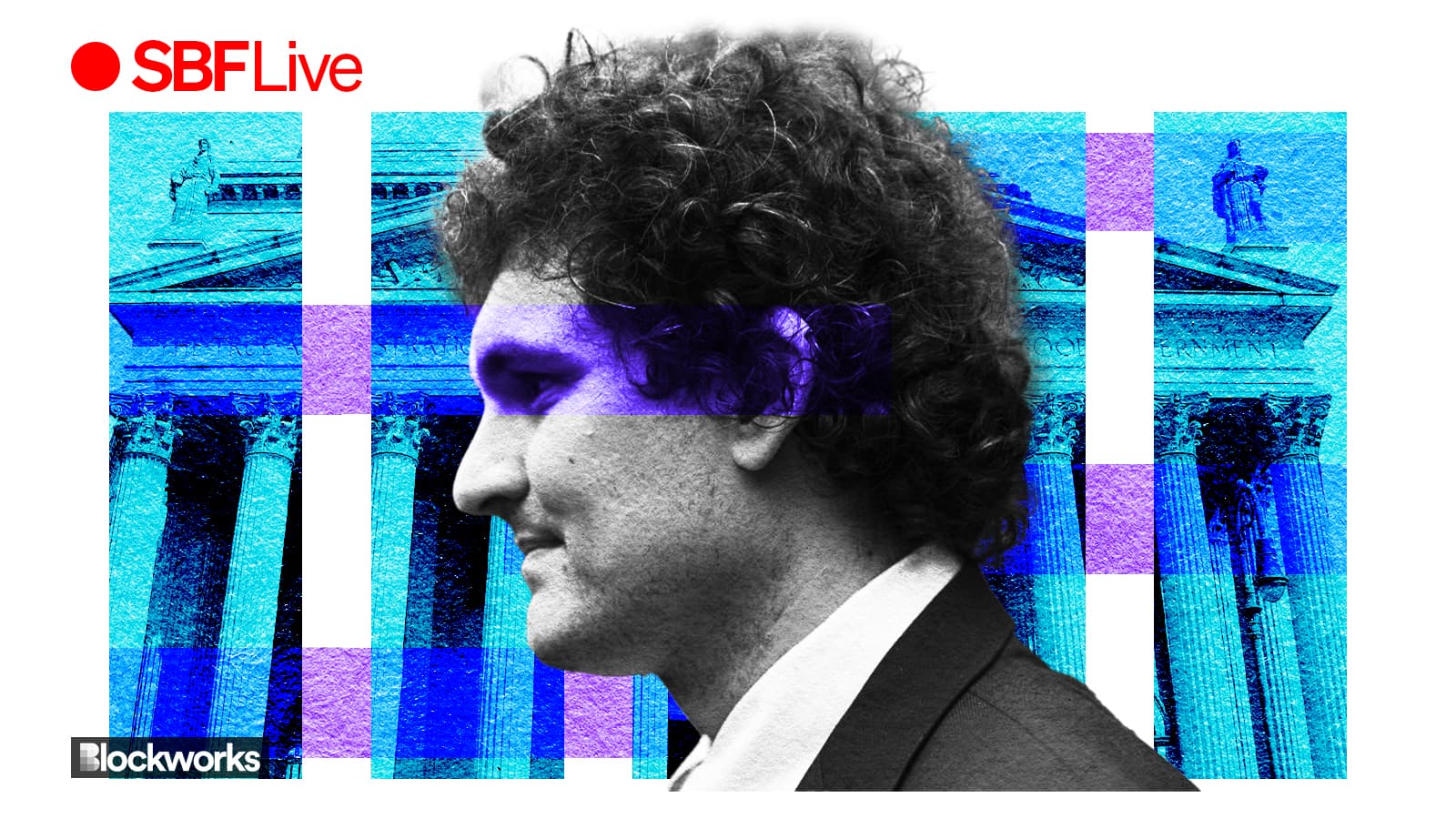Sam Bankman-Fried ‘lied to the world,’ prosecution posits in opening statement
“Sam didn’t defraud anyone,” Sam Bankman-Fried’s attorney countered in his opening statement. “Sam didn’t intend to defraud anyone.”

Artwork by Crystal Le
The Sam Bankman-Fried criminal trial, where he faces seven counts of federal offenses, is officially underway. The prosecution and defense presented their opening statements to the jury Wednesday afternoon after finalizing their selections earlier in the morning.
Both parties mentioned bitcoin in their opening remarks, noting that some jurors may have heard of the largest cryptocurrency. Mark Cohen, Bankman-Fried’s attorney, and Prosecutor Thane Rehn kept their remarks non-technical.
“Cryptocurrency is just a kind of money that exists on the internet,” Rehn said.
Cohen compared FTX to the New York Stock Exchange, explaining to jurors that it was a marketplace for purchasing and selling cryptocurrencies. Rehn was early to point out that FTX was not a bank, meaning it was not permitted to borrow or trade customers’ funds.
Both parties also mentioned former Alameda CEO Caroline Ellison, although the defense referred to her by name and the prosecution called her Bankman-Fried’s on-again-off-again girlfriend.
Read more: New Sam Bankman-Fried book ‘Going Infinite’ goes absolutely nowhere
Cohen said Bankman-Fried tried to get her to hedge her bets in the event of a market decline, but she didn’t listen.
“He was using her as a front,” Rehn said.
Cohen instead said that Bankman-Fried voluntarily stepped away from the day-to-day operations of Alameda and put Ellison in charge, trusting her to carry out the crucial things a CEO of a company is supposed to do.
However, Cohen clarified that as majority owner of Alameda, Bankman-Fried was “of course” still involved to some extent.
Prosecution’s case:
Rehn focused on the alleged theft Bankman-Fried facilitated, repeatedly claiming he knowingly stole FTX customer deposits, fiat and crypto alike through “secret” channels.
“This man stole billions of dollars from thousands of people,” Rehn told the jury.
FTX, Bankman-Fried’s exchange, was built to give “special access” to Alameda, the trading desk Bankman-Fried founded ahead of the exchange.
Read more: Day 2 of Sam Bankman-Fried’s trial: 5 things you should know
Rehn added that Bankman-Fried “lied to the world” about the security of customer funds on FTX, choosing to use the “billions of dollars” to fund his lavish lifestyle of private planes, beachfront properties and celebrity friends.
Rehn cited social media posts Bankman-Fried wrote in early November, right as the run of his exchange started. Bankman-Fried tried to delete these, Rehn added, saying “he didn’t want a paper trail for his crimes.”
The defense:
Cohen countered these claims when it was his turn to face the jury. He maintained that his client “acted in good faith,” repeatedly referring to the collapse of exchange FTX and “crypto hedge fund” Alameda as a “storm.”
“Sam didn’t defraud anyone,” Cohen said. “Sam didn’t intend to defraud anyone.”
Cohen insisted that his client is being misrepresented by the government; Bankman-Fried is simply “a math nerd who didn’t drink or party.”
Read more: Sam Bankman-Fried faces an uphill battle in fraud case, former mentor Scaramucci says
FTX was a startup that was still a “work in progress,” Cohen added, and if investors believed in Bankman-Fried’s vision and the potential of his company, well, “there’s nothing wrong with that.”
“Working on a startup, or at a startup, is like building a plane while you’re flying it,” Cohen said of FTX and its early days.
The company grew quickly, he added, stating that a proper risk management team was simply “part of the plane that didn’t get built while they were flying it.”
Get the news in your inbox. Explore Blockworks newsletters:
- The Breakdown: Decoding crypto and the markets. Daily.
- 0xResearch: Alpha in your inbox. Think like an analyst.






